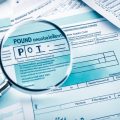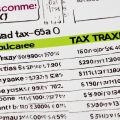Did you know that the UK government collects over £200 billion in business taxes each year? This staggering figure highlights just how crucial business tax compliance is for the financial health of the nation. As a business owner or manager in the UK, understanding the various taxes and obligations you must navigate is essential for ensuring the long-term success and sustainability of your organisation.
Business tax in the UK refers to the diverse range of taxes and compliance requirements that businesses must adhere to, including corporation tax, income tax, national insurance contributions, value added tax (VAT), business rates, dividends tax, and capital gains tax. Regardless of your business structure – whether you’re a limited company, sole trader, or partnership – you’ll need to register, calculate, pay, and file returns for these different types of business taxes, with the specific obligations depending on factors such as your profitability and the nature of your operations.
Mastering the complexities of business tax in the UK is crucial for maintaining financial stability, avoiding penalties, and ensuring your organisation remains compliant with all relevant laws and regulations. In this comprehensive guide, we’ll delve into the ins and outs of business taxation, equipping you with the knowledge and tools you need to navigate this crucial aspect of running a successful enterprise in the United Kingdom.
Introduction to Business Taxes in the UK
Businesses in the UK are subject to a range of taxes, including corporation tax, income tax, national insurance contributions (NICs), value added tax (VAT), business rates, dividends tax, and capital gains tax. The types of business taxes a firm must pay depend on various factors, such as the business structure (e.g. limited company, sole trader, partnership), the level of profits generated, the number of employees, and the nature of the business activities.
Types of Business Taxes
Understanding the different types of business taxes and the factors that determine a business’s tax liability is essential for ensuring compliance and managing tax obligations effectively. Businesses in the UK must navigate this complex landscape of business taxes in the uk to fulfil their tax responsibilities and maintain the financial health of their organisation.
Factors Determining Business Tax Liability
The factors determining business tax liability play a crucial role in determining the specific taxes a business must pay. These factors, such as the business structure, profitability, and number of employees, directly influence the types of business taxes a firm is subject to and the amount it must contribute.
By understanding the business taxes in the uk, the types of business taxes, and the factors determining business tax liability, businesses can ensure they meet their tax obligations while also minimising their tax burden through available deductions and allowances.
Corporation Tax
Corporation tax is a direct tax levied on the profits of limited companies and other corporate entities operating in the UK. Businesses must register for corporation tax when they start operating or restart a dormant business, typically at the same time as registering with Companies House.
Registering for Corporation Tax
Businesses in the UK are required to register for corporation tax with HM Revenue and Customs (HMRC) when they start trading or resume trading after a period of dormancy. This process usually takes place concurrently with the business registering with Companies House, the government agency responsible for maintaining the UK’s company register.
Calculating Corporation Tax
The amount of corporation tax a company must pay is based on its taxable profits. Different rates of corporation tax apply depending on the level of profits. Profits under £50,000 are taxed at 19%, while profits over £250,000 are taxed at 25%. For profits between £50,000 and £250,000, a sliding scale with Marginal Relief is used to determine the applicable tax rate.
Paying Corporation Tax
Companies must pay their corporation tax bill within nine months and one day of the end of their accounting period. This means that if a company’s accounting period ends on 31 March, the corporation tax payment is due by 1 January of the following year.
Filing Company Tax Returns
In addition to paying their corporation tax, companies must also file a company tax return within 12 months of the end of their accounting period. This return provides HMRC with detailed information about the company’s financial activities and the calculation of its tax liability.

Income Tax for Businesses
Businesses in the UK must also consider income tax obligations, which can arise in two ways. Firstly, as a sole trader, freelancer, or self-employed individual, you pay income tax on your business profits above the personal allowance. Secondly, as an employer, you must deduct income tax and national insurance contributions from your employees’ salaries and pay these to HMRC.
Income Tax for Sole Traders, Freelancers, and Self-Employed
Sole traders, freelancers, and self-employed individuals must submit a self-assessment tax return and pay their income tax by 31 January following the end of the tax year. This ensures they fulfil their income tax for businesses obligations and contribute to the funding of public services and infrastructure.
Income Tax for Employers and Employees
Employers must register with PAYE (Pay As You Earn) and deduct income tax and NICs from employee wages on a monthly basis. This income tax for employers and employees is a crucial aspect of business tax compliance in the UK, ensuring that the appropriate taxes are paid to HMRC in a timely manner.
National Insurance Contributions (NICs)
National Insurance Contributions (NICs) are another type of tax that businesses in the UK must pay. For self-employed individuals, this includes Class 2 NICs, which is a flat rate payment, and Class 4 NICs, which is a percentage of profits. However, from the 2024/25 tax year onwards, Class 2 NICs have been abolished, and self-employed workers will only need to pay Class 4 NICs.
1. Class 2 and Class 4 NICs for Self-Employed
Self-employed individuals are required to pay Class 2 and Class 4 national insurance contributions (NICs). Class 2 NICs are a flat-rate payment, while Class 4 NICs are a percentage of the self-employed person’s profits. The specific rates and thresholds for these contributions can vary depending on the individual’s circumstances. It’s important for self-employed workers to understand their national insurance obligations and ensure they are paying the correct amount.
2. Class 1 NICs for Employers and Employees
As an employer, you must also pay Class 1 NICs for your employees, in addition to deducting their Class 1 NICs from their wages. The specific NIC rates and thresholds can vary depending on factors such as employee age, apprenticeship status, and location. Ensuring accurate calculation and timely payment of Class 1 NICs is a crucial part of an employer’s tax compliance responsibilities.

Value Added Tax (VAT)
Businesses in the UK must also register for and comply with Value Added Tax (VAT) obligations. Companies with a taxable turnover of more than £85,000 are required to register for VAT, though businesses can also voluntarily register if their turnover is below this threshold. Registering for VAT means the business must charge VAT on most goods and services it sells, typically at a rate of 20%, and then pay the collected VAT to HMRC.
Registering for VAT
Businesses must calculate their VAT taxable turnover on a rolling 12-month basis to determine if they have reached the registration threshold. This involves adding up the value of all the goods and services a business has sold that are subject to VAT.
Calculating VAT Taxable Turnover
Calculating VAT taxable turnover is an important step in determining whether a business needs to register for VAT. Businesses must keep track of their sales and revenue, and ensure they are correctly accounting for any VAT that may be applicable.
VAT Rates and Exemptions
Certain goods and services may be subject to reduced or zero VAT rates. Understanding the VAT rates and exemptions that apply to a business’s products and services is crucial for ensuring accurate VAT calculations and payments.
Business Rates
Businesses that operate from a commercial property, such as a shop or office, are also required to pay business rates to their local council. Business rates are calculated based on the ‘rateable value’ of the property, which is an estimate of the property’s open market rental value, multiplied by a ‘multiplier’ or tax rate set by the government.
Calculating Business Rates
The formula for calculating business rates is as follows:
Rateable Value x Business Rates Multiplier = Business Rates Payable
For example, if a business property has a rateable value of £20,000 and the business rates multiplier is 0.512, the annual business rates payable would be £10,240 (£20,000 x 0.512).
Business Rates Relief
Businesses may be eligible for various forms of business rates relief, such as small business rate relief, which can reduce the amount of rates payable. Small business rate relief can provide a 100% discount on business rates for properties with a rateable value of £12,000 or less, and a tapered relief for properties with a rateable value between £12,001 and £15,000.
Other forms of business rates relief include relief for charitable organisations, empty properties, and those affected by natural disasters or local development initiatives. Businesses should check with their local council to determine if they qualify for any available business rates relief.
| Rateable Value | Business Rates Multiplier | Business Rates Payable |
|---|---|---|
| £20,000 | 0.512 | £10,240 |
| £50,000 | 0.512 | £25,600 |
| £100,000 | 0.512 | £51,200 |
Dividends Tax
Businesses in the UK that are structured as limited companies may also be subject to dividends tax. This tax applies to any dividends paid to shareholders, including company directors, and is charged at different rates depending on the shareholder’s total taxable income. The dividends tax is typically paid by the individual shareholder, rather than the company itself.
The dividends tax rates in the UK are as follows:
- Basic rate taxpayers: 8.75% on dividends above the £2,000 dividend allowance
- Higher rate taxpayers: 33.75% on dividends above the £2,000 dividend allowance
- Additional rate taxpayers: 39.35% on dividends above the £2,000 dividend allowance
It is important for businesses to ensure that they are complying with the dividends tax regulations and that their shareholders are paying the correct amount of tax on any dividends received. Failure to do so could result in penalties and other consequences from HM Revenue and Customs (HMRC).
Capital Gains Tax
Capital Gains Tax (CGT) is a tax charged on the profit or ‘gain’ made when selling or disposing of certain assets, such as investment properties or business assets. The amount of capital gains tax payable depends on the size of the capital gain and the individual’s overall tax situation. Businesses and individuals must calculate and declare any capital gains through their self-assessment tax return.
The rate of capital gains tax a taxpayer pays depends on their total taxable income and the type of asset being sold. For basic rate taxpayers, the capital gains tax rate is 10% on gains from the sale of most assets, and 18% on gains from the sale of residential property that is not the taxpayer’s main home. For higher rate taxpayers, the capital gains tax rate is 20% on gains from the sale of most assets, and 28% on gains from the sale of residential property that is not the taxpayer’s main home.
Businesses and individuals can utilise various capital gains tax reliefs and exemptions to reduce their tax liability, such as the annual capital gains tax allowance, which allows taxpayers to realise a certain amount of gains tax-free each year. Additionally, business asset disposal relief and entrepreneurs’ relief can provide further capital gains tax advantages for qualifying business owners and self employed individuals.
| Capital Gains Tax Rates | Basic Rate Taxpayers | Higher Rate Taxpayers |
|---|---|---|
| Gains on most assets | 10% | 20% |
| Gains on residential property (not main home) | 18% | 28% |
Properly understanding and managing capital gains tax obligations is crucial for businesses and individuals in the UK to ensure compliance and minimise their tax liability. By claiming available reliefs and exemptions, taxpayers can reduce the impact of capital gains tax on their financial situation.

What is Business Tax in the UK?
In summary, business tax in the UK refers to the various taxes and obligations that businesses must comply with, including corporation tax, income tax, national insurance contributions, value added tax (VAT), business rates, dividends tax, and capital gains tax. These taxes are essential for funding public services and infrastructure, and businesses that fail to pay their fair share of taxes can face significant penalties and consequences. Properly understanding and managing business tax responsibilities is crucial for the financial health and long-term sustainability of any organisation operating in the UK.
Defining Business Tax
Business tax in the UK encompasses the various levies and obligations that companies and enterprises must adhere to, ranging from direct taxes on profits to indirect taxes on goods and services. These taxes play a vital role in supporting the nation’s public infrastructure and services, ensuring that businesses contribute to the broader economic and social fabric of the country.
Importance of Paying Business Taxes
Paying business taxes is not just a legal requirement, but a crucial aspect of corporate social responsibility. By fulfilling their tax obligations, businesses demonstrate their commitment to the communities in which they operate and contribute to the funding of essential public services, such as healthcare, education, and transportation. Failure to pay the required business taxes can result in severe penalties, reputational damage, and increased scrutiny from tax authorities, jeopardising the long-term viability and sustainability of the enterprise.
Tax Deductions and Allowances
Businesses in the UK may be able to claim various tax deductions and allowances to reduce their overall tax liability. These tax benefits can provide significant savings and help optimise a company’s financial performance.
1. Capital Allowances
One of the key tax deductions available to businesses is capital allowances. These allowances enable companies to deduct the cost of certain capital expenditures, such as the purchase of business equipment, machinery, and vehicles, from their taxable profits. By claiming capital allowances, businesses can offset a portion of their tax burden and free up funds for reinvestment or other operational needs.
2. Trading Allowance
In addition to capital allowances, the trading allowance provides an important tax-saving opportunity for sole traders, freelancers, and self-employed individuals. This allowance grants a £1,000 tax-free threshold on business income, meaning sole traders and the self employed can earn up to £1,000 in trading income without incurring any tax liability. Properly utilising the trading allowance can help minimise the tax burden for small businesses and entrepreneurs.
By understanding and effectively claiming available tax deductions and allowances, businesses in the UK can optimise their tax planning, improve their bottom line, and enhance their overall financial sustainability. Careful management of these tax benefits can make a significant difference in a company’s profitability and competitiveness.

Tax Compliance and Penalties
Businesses in the UK must ensure they comply with all relevant tax laws and regulations, including accurately calculating and paying the required taxes, maintaining detailed financial records, and filing tax returns on time. Failure to comply with these requirements can result in significant penalties, such as fines, interest charges, and even criminal prosecution in serious cases.
Keeping Accurate Records
Keeping accurate and up-to-date records is essential for demonstrating tax compliance and avoiding potential issues with HM Revenue and Customs (HMRC). Businesses should meticulously document all financial transactions, invoices, receipts, and other relevant documentation to ensure they can easily substantiate their tax filings and calculations if required.
Consequences of Non-Compliance
Businesses should also be aware of the consequences of non-compliance, which can include financial penalties, reputational damage, and increased scrutiny from tax authorities. Failure to pay taxes on time or accurately report income and expenses can lead to significant fines, interest charges, and even criminal prosecution in extreme cases. Non-compliance can also result in increased audits and investigations, further disrupting the business’s operations and finances.
Conclusion
Understanding and properly managing business tax responsibilities is crucial for the success and compliance of any organisation operating in the UK. Businesses must navigate a complex landscape of taxes, including corporation tax, income tax, national insurance contributions, value added tax (VAT), business rates, dividends tax, and capital gains tax. By comprehending the different types of business taxes, the factors that determine tax liability, and the available deductions and allowances, businesses can ensure they meet their tax obligations while also minimising their tax burden.
Maintaining accurate records and complying with all relevant tax laws and regulations is essential to avoid penalties and maintain the financial health of the business. With this comprehensive guide, business owners and managers in the UK can stay informed and prepared to handle their tax responsibilities effectively. The conclusion of this article underscores the importance of understanding the conclusion of business taxation in the UK, empowering businesses to navigate the tax landscape with confidence and optimise their financial performance.
By staying up-to-date with the latest developments in business taxation and utilising available deductions and allowances, businesses in the UK can position themselves for long-term success and compliance. The conclusion of this guide serves as a valuable resource for business owners and managers, equipping them with the knowledge and insights necessary to effectively manage their tax obligations and minimise their tax burden.
FAQ
1. What is the definition of a tax business?
A tax business refers to the various taxes and obligations that businesses must comply with in the UK, including corporation tax, income tax, national insurance contributions, value added tax (VAT), business rates, dividends tax, and capital gains tax.
2. Who pays business taxes?
Businesses in the UK are required to pay a range of taxes, including corporation tax, income tax, national insurance contributions, VAT, business rates, dividends tax, and capital gains tax. The specific taxes a business must pay depend on factors such as the business structure, level of profits, number of employees, and nature of business activities.
3. What tax do I pay if I sell my business?
When selling a business, the tax you may need to pay is capital gains tax. Capital gains tax is charged on the profit or ‘gain’ made when selling or disposing of certain assets, such as business assets. The amount of capital gains tax payable depends on the size of the capital gain and the individual’s overall tax situation.
4. Do I pay tax if I sell my small business?
Yes, if you sell your small business, you may be liable to pay capital gains tax on the profit or ‘gain’ made from the sale. The amount of capital gains tax you will need to pay depends on the size of the capital gain and your overall tax situation.
5. How to capital gain tax?
To calculate capital gains tax, you need to determine the capital gain, which is the difference between the sale price of an asset and its original cost (or ‘base cost’). The amount of capital gains tax payable will depend on factors such as your total taxable income, the size of the capital gain, and any available allowances or reliefs.




















No Comments
Leave a comment Cancel